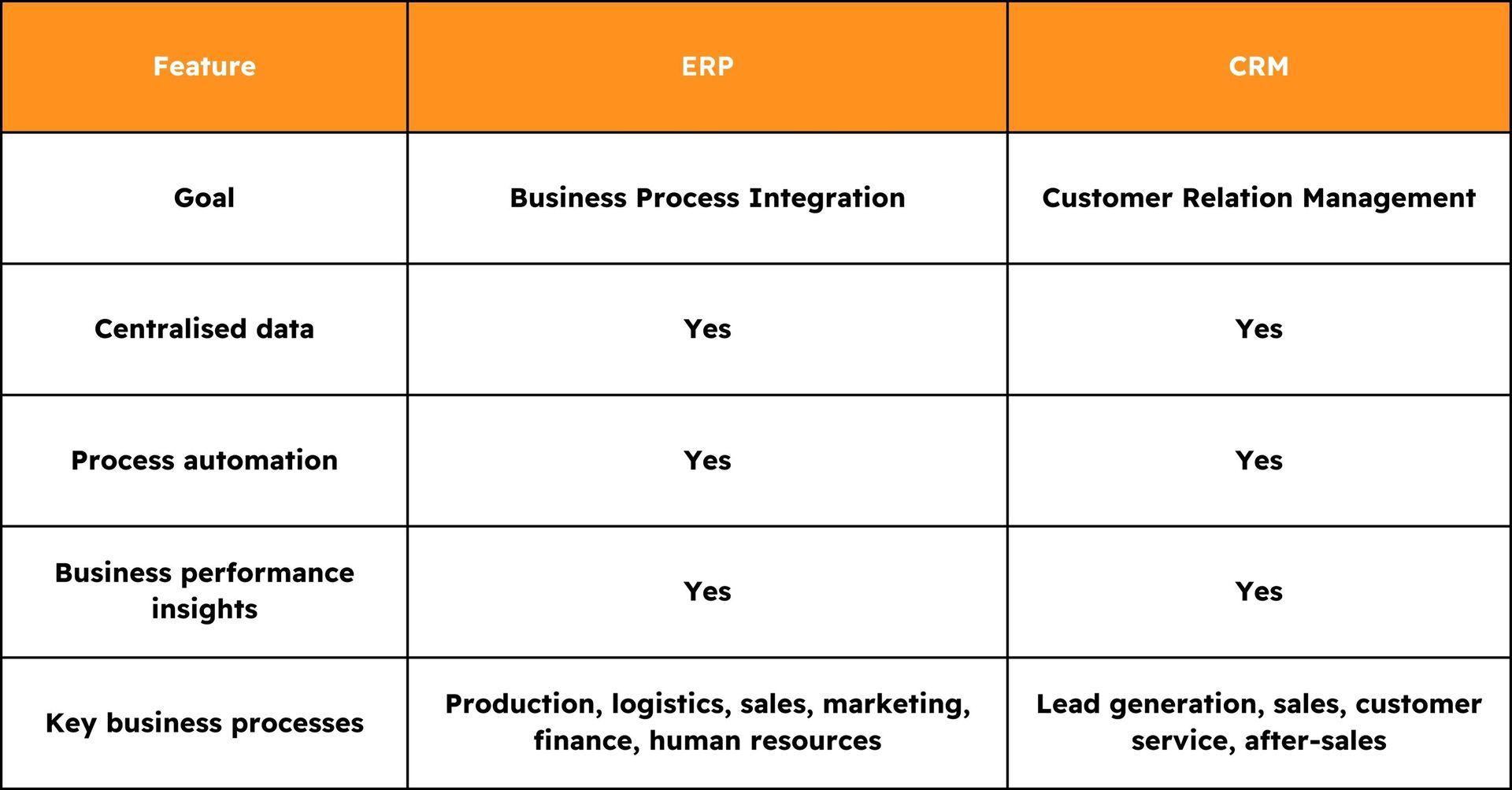What is ERP?
ERP stands for Enterprise Resource Planning. It is a software solution that integrates all of a company's business processes. This includes processes such as production, logistics, sales, marketing, finance, and human resources.
The goal of ERP is to work efficiently, prevent duplication of work, and provide more insight and overview in general. It is therefore a combination of processes and agreements. ERP therefore touches everything within a company. From production to sales, from procurement to logistics, and from HR to marketing.
What is CRM?
CRM stands for Customer Relationship Management. It is a software solution that helps businesses manage their relationships with customers. This includes processes such as lead generation, sales, customer service, and after-sales. CRM therefore maps customers and sales. It can be part of an ERP system.
Difference between ERP and CRM
ERP and CRM are both important tools for businesses, but they have different objectives. ERP is focused on integrating business processes, while CRM is focused on managing customer relationships.
ERP and CRM systems are often complementary to each other. By implementing both systems, businesses can further integrate their business processes and improve their customer relationships.

When to choose ERP?
Businesses should choose ERP if they want to:
- integrate their business processes
- improve their efficiency and effectiveness
- reduce their costs
- increase their profitability
An ERP system facilitates and provides insight and overview, but is not a must. We would be happy to review with you whether possible costs and benefits are in balance. Because a good ROI (return on investment) is important.
What does an ERP system cost?
The cost of ERP varies depending on the size and complexity of the business, the features of the ERP system, and the vendor of the ERP system. In addition, each company has its own organization, (management) culture, and USPs. Therefore, there is no single answer to the question of what an ERP system costs. However, we can identify different types of costs.
Direct costs
One-time:
• Implementation
• Setup costs
Recurring:
• Licenses
• Hosting*
Indirect costs
• Hardware
• Software
About the Odoo ERP system
Odoo is an open source ERP system that is available to both small and large businesses. Odoo is modularly built, so businesses can only use the modules they need. This makes Odoo very affordable and flexible.
Odoo offers a wide range of functionality, including:
- Production
- Logistics
- Sales
- Marketing
- Finance
- Human resources
Odoo is an innovative ERP system that is constantly being updated with new features and improvements. An ideal solution for businesses looking for an affordable, flexible, and innovative ERP solution.